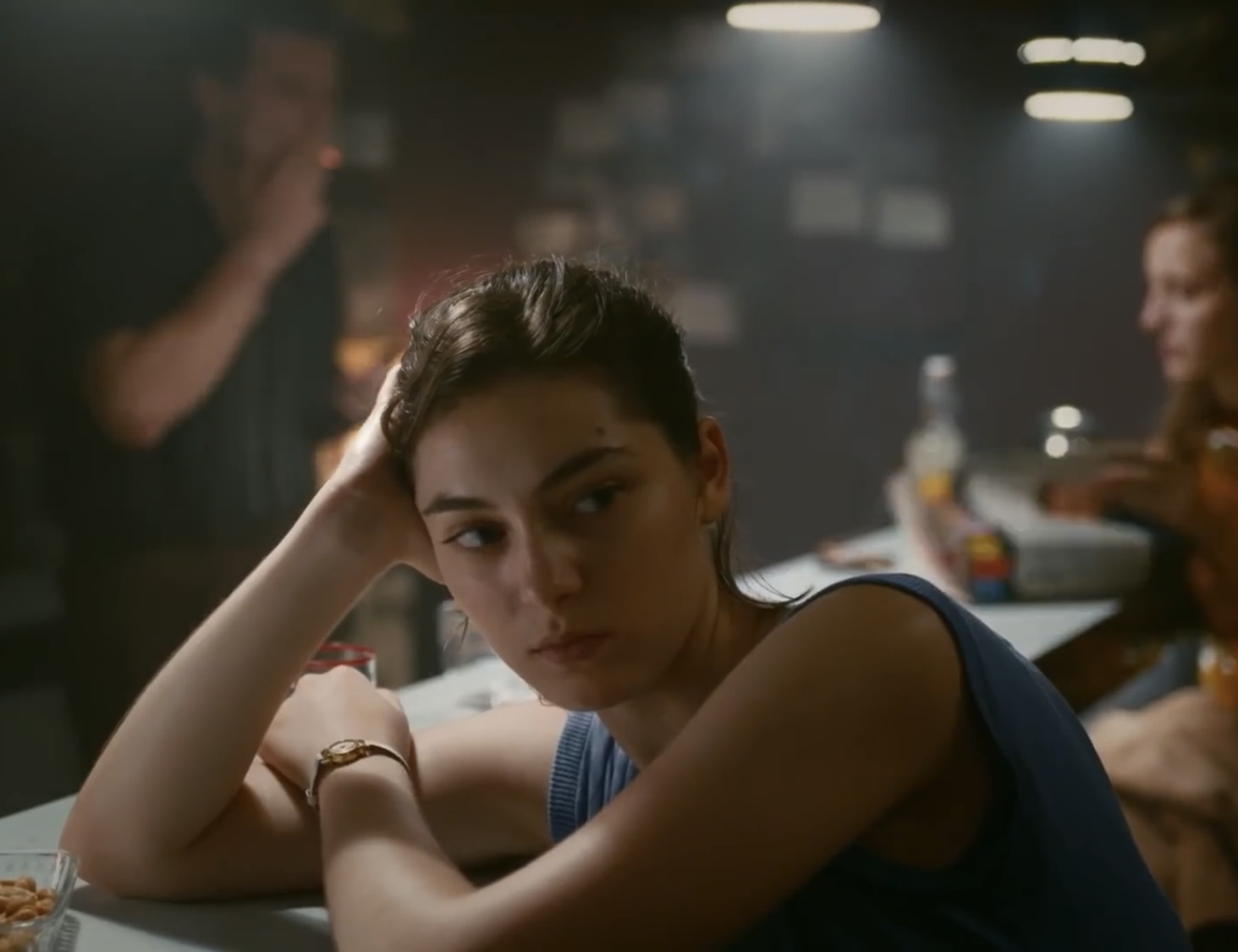Happening benefits from impeccable timing. With Roe v Wade on the precipice of being overturned in the United States, Audrey Diwan’s harrowing abortion tale from the past sadly has been made very important for the present. Regardless of their illegality, abortions are going to happen, Happening in ways not too dissimilarly than what occurs in Diwan’s movie in 1960s France.
Anne (Anamaria Vartolomei) is a bright girl on the precipice of potentially going to uni. She excels at English, hoping to use that education to propel her to a better life. But while enjoying her youth with her friends, she meets a boy from Bordeaux, and at a doctor’s appointment, finds out she’s pregnant. Understanding how this will destroy any chance at a better life, Anne goes on the most harrowing journey of her life, with no idea or guide as to how to get the procedure done: abortions were illegal in France at that time.
Writer/director Audrey Diwan came from a journalist background, and has probably a list of words/literary expressions she is trying to get into a movie. I almost wish she called this film Anaphora, a key figure of speech Anne uses to show her reading prowess. An anaphora is a phrase repeated at the beginning of a series of successive sentences for emphasis (the “I have a dream” speech from MLK is a great example). Anaphora becomes Anne’s waking nightmare over the course of Happening. She hears the same few phrases over and over: “What’s wrong?” “I can’t help” “Let’s not talk about it.” You can feel Anne’s exasperation as the people around her navigate away from the abortion conversation she desperately needs to have out of fear for their well being at the expense of Anne’s. These repeated setbacks cause Anne to become more terse and callous toward the people in her life, as she figures out who she can and cannot trust. And more desperate, as all these supposed friends turn on her and she becomes more and more isolated and risky.
The power of Happening is how straightforward and by the numbers Anne’s journey was at the time, very similar to Never Rarely Sometimes Always. Anne resembles any young woman on the precipice of her life: excited to get out of her little town and see what the world has to offer. But the minute after her pregnancy diagnosis, we see the slow, heartbreaking escalation of Anne’s decision making. At first she quietly inquires with a few doctors, who prescribe medication that doesn’t work, which rules out legal doctors as an option. Anne then asks her friends for help, but they instead mean girl her, and slut shame. Mom and dad see Anne as the savior of the family, so can’t tell them either. What does that leave Anne? Library books in school detailing gruesome abortion methods, or asking shady men for their help in exchange for what they see as a “free pass.” Diwan’s movie, dictating urgency by another week passing, shows the horrors of what Anne has to put herself through because she doesn’t want to be doomed to a life of unhappiness and maybe outright hatred of her kid. The medical procedures are terrifying as they should be, but what’s sadly unsurprising is the series of let downs and set backs that led to these inevitable, cruel tactics Anne has to endure, on full display from the incredible performance from Anamaria Vartolomei.
Happening shows the inhumanity and emotional distress a woman will be put through after one unlucky protectionless sexual encounter. Regardless of how you feel morally about abortion, I hope this movie will make you feel empathy for young girls like Anne, forced into incredibly stressful situations the world refuses to help them with. I know I will have nightmares about the insane “medical” procedures Anne is forced put herself through.

